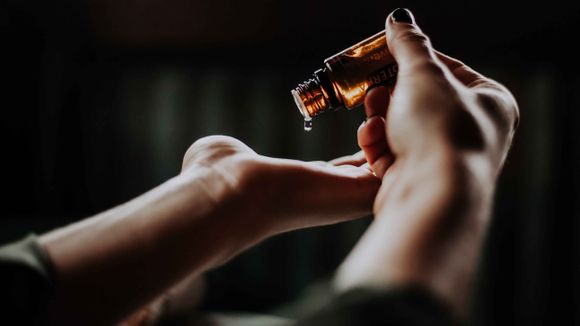Natural Remedies for Skin Problems
Aloe Vera (Aloe barbadensis Miller)
Renowned for its soothing, moisturizing, and anti-inflammatory properties, aloe vera has been a go-to skin remedy for centuries. The gel inside the aloe leaf is packed with active compounds, including polysaccharides, vitamins, enzymes, and minerals, which contribute to skin health.
Preparation: Cut a fresh aloe leaf and squeeze out the gel. Apply the gel directly to the irritated skin area and let it dry before washing off.
Calendula (Calendula officinalis)
Also known as pot marigold, Calendula's vibrant orange flowers are more than just a pretty sight. They are rich in flavonoids and carotenoids, which have anti-inflammatory, antiviral, and antimicrobial properties.
Preparation: Prepare a Calendula infusion by steeping dried flowers in boiling water for about 10-15 minutes. Strain, cool and use as a skin wash or compress.

Photo by Jana Ohajdova on Unsplash
Chamomile (Matricaria chamomilla)
Chamomile's anti-inflammatory, antibacterial, and calming properties make it a valuable ally for skin health. Its active compounds, including chamazulene, apigenin, and bisabolol, help to soothe skin irritations.
Preparation: Make a chamomile tea by steeping dried flowers in hot water for 10 minutes. Allow it to cool, then use a cloth to apply to affected skin areas.
Herbs with Anticancer Properties
Turmeric (Curcuma longa)
Turmeric, a golden spice known for its anti-inflammatory and antioxidant properties, also exhibits anticancer capabilities. The active ingredient, curcumin, has been studied for its potential to inhibit cancer cell growth and metastasis.
Preparation: Mix turmeric powder with a carrier oil (like coconut or olive oil) and apply it to the skin. Rinse after 10-15 minutes. Avoid leaving it on for too long as it can stain the skin.
Green Tea (Camellia sinensis)
Packed with potent antioxidants known as catechins, green tea is renowned for its anticancer properties, particularly epigallocatechin-3-gallate (EGCG), which has shown potential in preventing skin cancer.
Preparation: Brew green tea leaves in boiling water for 3-5 minutes, let it cool, then apply to the skin using a soft cloth.

Photo by towfiqu-barbhuiya on Unsplash
Questions and Answers
Q: Can I use these remedies if I have sensitive skin?
A: Yes, but always do a patch test first to make sure you don't have an allergic reaction.
Q: Can these remedies replace my prescribed medication?
A: No, these remedies should be used as a complement to your prescribed treatment, not a replacement. Always consult your healthcare provider before making any changes to your medication regimen.
Q: How often can I apply these natural remedies?
A: This varies depending on the remedy and the severity of your skin condition. As a general rule, once or twice daily is a good starting point.
Q: Can these remedies cure my skin condition?
A: While these remedies can help soothe symptoms and support skin health, they are not a guaranteed cure. Always work with a healthcare provider for a comprehensive treatment plan.
Q:Are there any side effects to using these remedies?
A: Possible side effects can include allergic reactions or skin irritation. Always do a patch test first and discontinue use if you notice any adverse reactions.
Remember, our skin is a reflection of our overall health, so maintaining a balanced diet, staying hydrated, getting enough sleep, and managing stress are also crucial for maintaining healthy skin.









